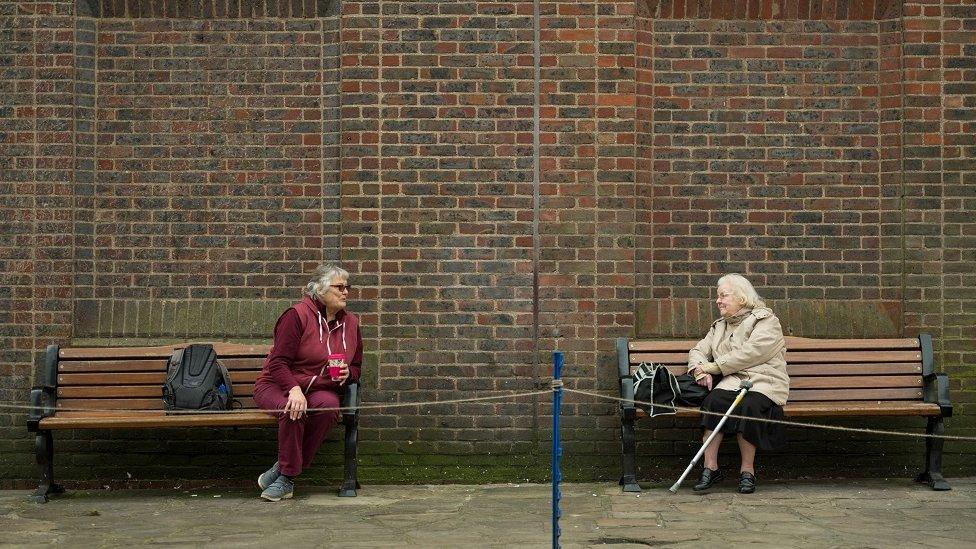Coronavirus: Lockdown to be relaxed in England as 2m rule eased
- Published
- comments

Pubs, restaurants, hotels and hairdressers can open from 4 July in England, when social distancing rules will be eased.
Prime Minister Boris Johnson said people should remain 2m apart where possible but a "one metre plus" rule would be introduced.
Two households in England will also be able to meet indoors and stay overnight - with social distancing.
The prime minister warned that all the steps were "reversible".
The government's chief medical adviser, Prof Chris Whitty, said the relaxation represented a "reasonable balance of risk".
Scotland's First Minister Nicola Sturgeon, Wales' First Minister Mark Drakeford and Northern Ireland's Arlene Foster have said the 2m rule will remain in place in their nations for the time being.
Theatres, cinemas, libraries, museums, theme parks and zoos are among other businesses that can also reopen.
But indoor gyms, swimming pools, nail bars and indoor play areas will remain closed for the moment, as they have been since lockdown started on 23 March.
During the government's final daily coronavirus briefing, Mr Johnson said "task forces" were being established to work out how they too could reopen.
The meeting of households will not be exclusive so, for example, one set of grandparents could see their relatives one weekend, and the other set of grandparents the next.
But, unlike the bubble system, people will have to maintain social distance - so family members who live apart will not be able to hug.
In a statement in the Commons earlier, Mr Johnson said people would be encouraged to use "mitigation" - such as face coverings and not sitting face-to-face - when less than 2m from each other but "where it is possible to keep 2m apart, people should".
Boris Johnson is cheered as he announces English pubs can reopen from 4 July
Prof Whitty warned "we will get an uptick" if people did not take such measures seriously.
And Mr Johnson urged people to be vigilant, saying the virus "wants to take advantage of our carelessness".
He said there would be local outbreaks in the future - and that he would not hesitate to reverse the changes at local or national level if the virus were to begin to run out of control.
The venues listed as being able to reopen include:
Pubs, bars and restaurants but only with a table service indoors, and owners will be asked to keep contact details of customers to help with contact tracing
Hotels, holiday apartments, campsites and caravan parks but shared facilities must be cleaned properly
Theatres and music halls but they will not be allowed to hold live performances
In other changes weddings will be allowed to have 30 attendees, and places of worship will be allowed to hold services but singing will be banned
Hair salons and barbers will be able to reopen but must have protective measures, such as visors, in place
Libraries, community centres and bingo halls
Cinemas, museums and galleries
Funfairs, theme parks, adventure parks, amusement arcades, skating rinks and model villages
Indoor attractions where animals are exhibited, such as at zoos, aquariums, farms, safari parks and wildlife centres

What cannot open from 4 July?
The following places will remain closed by law
Nightclubs and casinos
Bowling alleys and indoor skating rinks
Indoor play areas including soft-play
Spas
Nail bars and beauty salons
Massage, tattoo and piercing parlours
Indoor fitness and dance studios, and indoor gyms and sports venues/facilities - although Culture Secretary Oliver Dowden tweeted that ministers hope to be able to reopen gyms and leisure facilities in mid-July
Swimming pools and water parks
Exhibition or conference centres - other than for those who work for that venue.

Responding to Mr Johnson's statement on Tuesday afternoon, Labour leader Sir Keir Starmer said: "I believe the government is trying to do the right thing and in that I support them".
He added he thought it was "safe for some children to return to school" after the PM said schools in England should return in full in September.
In Scotland, schools are aiming to reopen full-time in August, in Wales some schools will resume for just three weeks later this month, while Northern Ireland has a 24 August target for full reopening.


Restrictions have to lift at some point. The big question is whether the UK is moving too soon.
The number of infections has fallen dramatically.
There are now just over 1,000 new cases a day on average.
That compares with an estimated 100,000 at the peak at the end of March - we don't know the exact figure because there was limited testing in place.
Huge progress has, therefore, been made.
But the number of infections is still significantly higher than other countries.
France and Germany are seeing fewer than half the number of infections that the UK is (and Germany has a larger population), while Italy has fewer than a quarter.
It is why there are plenty of experts, including former government chief scientific adviser Sir David King, voicing concern that restrictions are easing too quickly.
But, of course, not lifting them comes at a cost too - to the economy, to people's health and wellbeing and to wider society.
At the end of the day, it is a finely balanced judgement call.
We will only know whether it was the right one or not in the weeks and months to come.

Current evidence suggests being 1m apart carries between two and 10 times the risk of being 2m apart, scientists advising the government have said., external
Under new guidance, the government wants people to keep 2m apart where they can. If not, to remain at least 1m apart while taking steps to reduce the risk of transmission.
They include measures such as not sitting face-to-face, cutting the number of people in an enclosed space, or having hand-sanitiser available to use.
Mr Johnson stressed that the government was not "forcing" people to limit their social contact through legislation, but was "asking them to follow guidance".
Police would still be able to "break up large and irresponsible gatherings", he said.

A SIMPLE GUIDE: How do I protect myself?
IMPACT: What the virus does to the body
RECOVERY: How long does it take?
LOCKDOWN: How can we lift restrictions?
ENDGAME: How do we get out of this mess?

Earlier, he said it was each nation's own responsibility to make their own lockdown restrictions but said all parts of the UK were now "travelling in the same direction".
The prime minister added he did not believe there was "a risk of a second peak of infections that might overwhelm the NHS".
A further 171 deaths were reported in the UK on Tuesday, taking the total to 42,927, while latest testing figures showed there were 874 new positive cases.
According to the latest official figures, the R value for the UK - the average number of people that one infected person passes the virus on to - is between 0.7 and 0.9.
Chief scientific adviser Sir Patrick Vallance, who also spoke at the briefing, said the public should not "be fooled" into thinking that the virus had "gone away".
"The disease is growing across the world," he said.
Prof Whitty said he would be "surprised and delighted if we weren't in this current situation through the winter and into next spring".
'Big moment'
BBC political editor Laura Kuenssberg said: "This is not a return back to normal business, but it is a very big moment, and a step to a new normal.
"One important point to note though, as I understand it, the advice from the government will still be that people should work at home if they can."

Excitement and indifference
By Alice Evans, BBC News
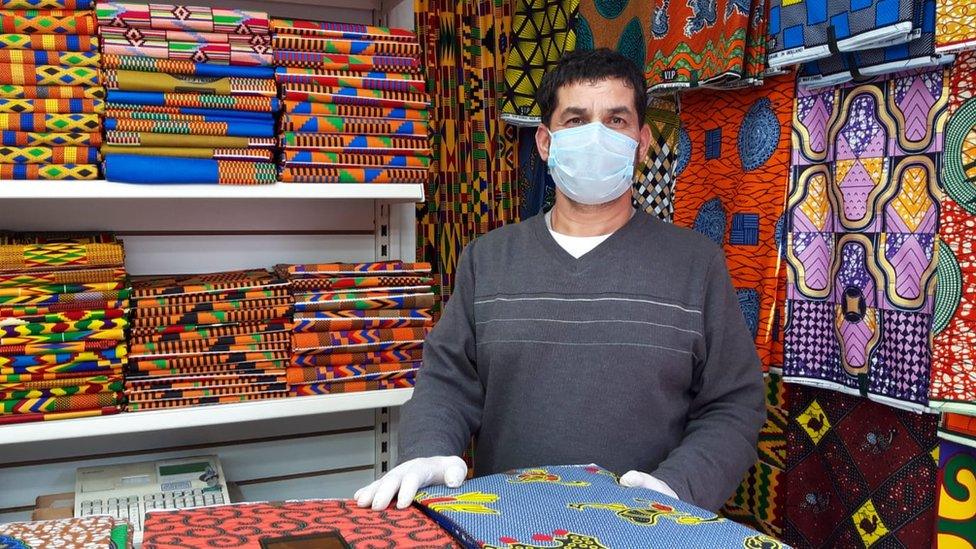
Shop owner Rezia isn't optimistic that business will improve for him when other places re-open
Brixton looks almost normal this afternoon. Plenty of the market stalls are open, there's a steady stream of shoppers, and blaring music is coming from several shops. So far, so Brixton.
But the many boarded-up businesses down the backstreets of this buzzing south-London neighbourhood are a tell-tale sign of the effect lockdown has had on trade.
Some local firms have welcomed the prime minister's news. The Duke of Edinburgh pub, for example, is busy making its huge beer garden Covid-secure, with staff "really excited" for their customers to return. The customers are similarly keen - the pub's booking website crashed minutes after the prime minister's announcement.
But others aren't so enthused. Fabric shop owner Rezia (pictured above) is happy with the 2m rule being relaxed to 1m, but is convinced business will remain "slow" for him. It doesn't matter that more people will be out and about spending money - they are not going to buy fabric, he says, on their way home from the pub.

Wetherspoon chairman Tim Martin said he was "extremely pleased" that pubs were reopening after a long hiatus.
"We are going to discuss the precise government proposals with our pub managers and staff before we comment further on the details."
UK Hospitality chief executive Kate Nicholls said reopening was the best way to secure business and jobs - but warned that social distancing constraints would mean some businesses were unviable, and government support remained "crucial".
Glenn Earlam, chief executive of David Lloyd gyms, said he was disappointed by the announcement, since preparations had been under way for the sector to reopen from 4 July.
"For the last three weeks we've been working on an awful lot of detail," he said. "Everything from temperature checks of our members when they arrive at reception, to screens at reception, to hand sanitisation, to an extreme cleaning regime."
An instant online poll carried out by YouGov shortly after Mr Johnson's announcement suggested 64% of people supported the reopening of the specified sectors and 73% backed the decision to allow two households to meet indoors.

WEIR, BURROW AND DARBY: Life with MND under lockdown
THE NEXT MUST-SEE DRAMA IN LOCKDOWN: The Salisbury Poisonings

- Published1 July 2022

- Published14 July 2021
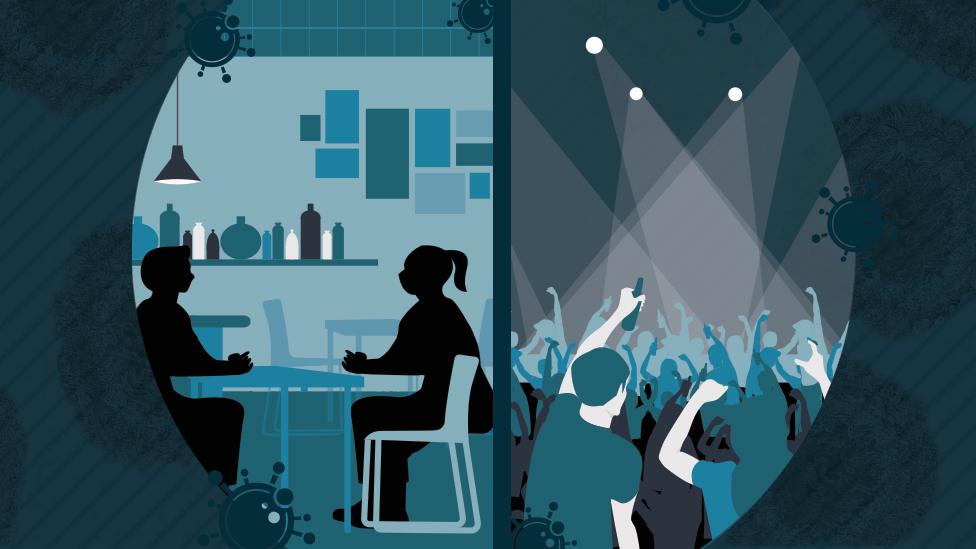
- Published23 June 2020
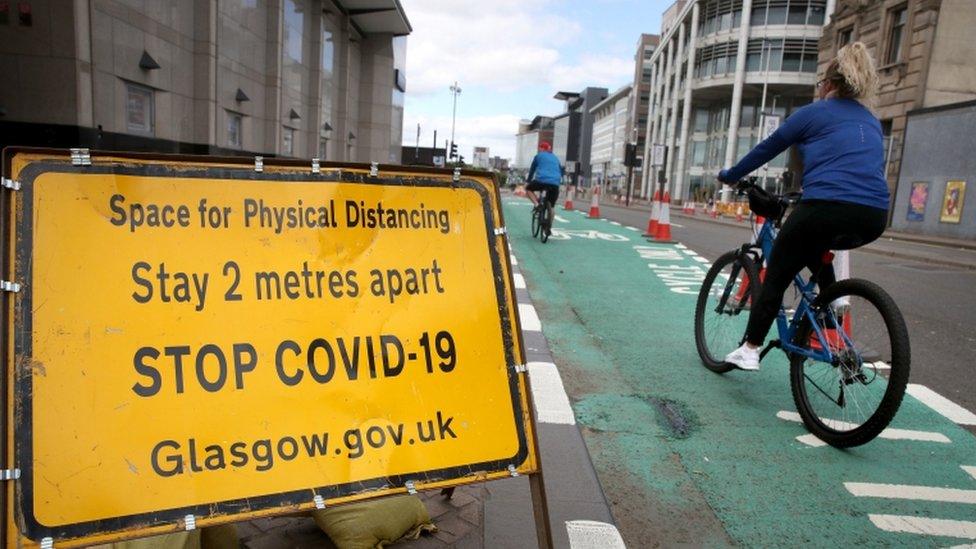
- Published23 June 2020
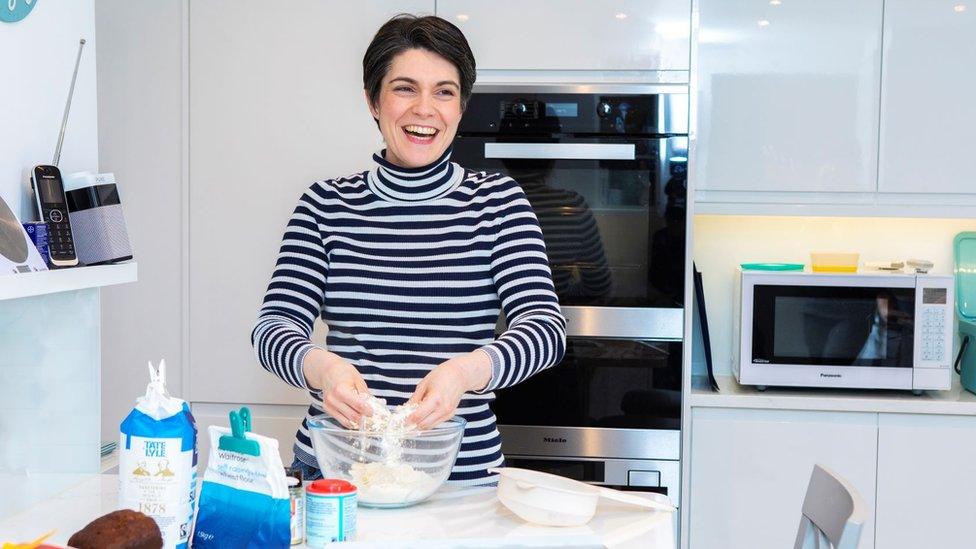
- Published21 June 2020
